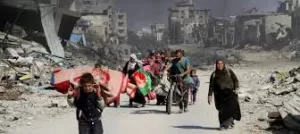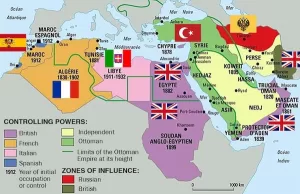Rachel Corrie, an American Palestine-solidarity activist, was crushed to death by an Israeli bulldozer twenty years ago this month. She was murdered by the Israeli Defence Force (IDF) while attempting to defend a Palestinian home from demolition in Rafah, a city in the blockaded Gaza Strip. Samir Nazrallah, whose home Corrie was trying to protect, told Al-Monitor:
“I was watching what was happening through a hole in the house’s wall. I remember that the driver pulled out the soil from under Rachel’s feet, which made her lose balance, and then, when she fell, he ran over her.”
Israeli accounts of the event defy credibility. An IDF major accused Corrie and her fellow activists of endangering Israeli troops through their non-violent protests. Her murderer claimed he could not see her. Corrie was standing directly in front of the bulldozer holding a megaphone and dressed in a fluorescent orange jacket.
“She was standing on top of a pile of earth … The driver cannot have failed to see her”, Richard Pursell, another eyewitness, told the Guardian. “As the blade pushed the pile, the earth rose up. Rachel slid down the pile. It looks as if her foot got caught. The driver didn’t slow down; he just ran over her. Then he reversed the bulldozer back over her again.”
Yet the Israeli courts ruled in 2012 that Rachel Corrie was herself to blame. The judge declared that this was “an accident she brought upon herself”. The Supreme Court of Israel upheld the ruling in 2015.
After Corrie’s murder, much of the American mainstream media launched a campaign of slander against her. The Wall Street Journal published an article that read:
“I want to thank Corrie for the explosives that flow freely from Egypt to Gaza, via the smuggling tunnels under the Gaza homes that she died defending … I want to thank Rachel Corrie for showing Palestinian children how to despise America.”
Rachel Corrie’s family has been seeking justice for the last twenty years. At every turn they have been stymied by the United States’ unwavering support for Israel and its crimes.
The Corries often met with current Secretary of State Anthony Blinken. According to the family, he was personally warm, even signing off letters and emails as “Tony”. But personal sympathy means little when the Obama administration, of which Blinken was a part, funded the Israeli military at record levels. A bill for a U.S.-led investigation into Corrie’s murder was never moved on the floor of Congress. When an American citizen was killed in 2018 in Israel by a Palestinian, however, a law was swiftly passed to cut economic aid to Palestine.
The backdrop to Corrie’s murder was the Second Intifada. When Israeli Prime Minister Ariel Sharon provocatively marched into al-Aqsa Mosque in 2000, Palestinians launched an uprising against their oppressors. Israel dealt with them ruthlessly. More than 3,000 Palestinians were murdered, some 6,000 were arrested, and 4,100 Palestinian homes were demolished. On the night of Corrie’s death, nine Palestinians were killed in the Gaza Strip.
The murder of Rachel Corrie and her family’s long fight for justice are emblematic of Israel’s crimes against the Palestinians. Her murder exposes the brutality of the Israeli army, which is faced by Palestinians daily. The denial of justice by the Israeli legal system is all too familiar to Palestinians whose rights have been crushed.
Corrie’s bravery is part of a rich history of solidarity with the long struggle for Palestinian liberation. This is worth remembering in Australia, a country so committed to its alliance with Israel. As Corrie herself wrote just two weeks before her death:
“I think freedom for Palestine could be an incredible source of hope to people struggling all over the world.”
(Courtesy: Red Flag, a publication of Socialist Alternative, an Australian socialist group.)




